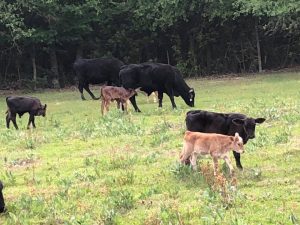 Saturday morning, I saddled Knockout and rode out in the pasture to check cows. We counted every cow, calf, and bull, checking off ear tags as we went.
Saturday morning, I saddled Knockout and rode out in the pasture to check cows. We counted every cow, calf, and bull, checking off ear tags as we went.
Once all the cattle were accounted for and verified as healthy, we rode the fence lines looking for any problems. We found an electric fence down on the front pasture. I dismounted, dropped the rein on the ground with the word, “Stay,” and walked over to investigate.
I started at the creek, which is usually a troublesome spot. Creeks are always a challenge to fence and we usually have to add extra wire strands to address the shift in elevation from creek bank to middle of creek. Sure enough, wires had been drug everywhere.
I walked back to Knockout and unzipped the cantle bag to retrieve fencing pliers and a bag of insulators. Then I returned to the creek to repair the damage at that spot.
Once I had the fence repaired across the creek, I started working my way back lifting the fence wire off the ground back onto the post insulators. About three posts down, I found the break in the wire and started looking for the other wire end. It was a few more posts before I found the other wire end and started walking it back toward the break.
I ran out of wire about 20 yards short. That didn’t seem right, so I left the wire end and started walking north to investigate. I found a wire splice hung on a post insulator. I moved the splice past the insulator and started pulling wire thru.
Something still didn’t feel right and I could see a dead branch laying on the wire a little further down. I walked down, moved the dead branch, then gave another pull on the wire. I could see now that more insulators were missing. I replaced the missing insulators lifting the wire back in place as I went.
When I pulled the slack, something still didn’t look right. I could see the wire tighten between me and the next post, but it hung slack after that. I walked to the next post to discover another wire splice hung on a post insulator.
From there, I saw an insulator missing from a tree and decided to come back to that one with Knockout, since I needed nails from the cantle bag. So I skipped that one and walked to the next post to lift the wire back on the insulator.
By the time I had the fence back on the posts and free of obstructions, I had worked my way down around the corner from Knockout. Knockout was about 300 yards away and out of my sight.
I started back, carrying my tools.
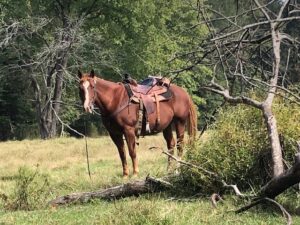
Knockout watching and waiting
As I rounded the corner, I saw Knockout standing exactly where I left him. His head was up, alert, and turned toward me, watching for my return. As I came into his view, he lowered his head and relaxed.
I drug the wire ends together, tightened and spliced the fence, then returned to Knockout to stow my tools back in the cantle bag.
What a great horse!
Altogether, Knockout stood ground-tied about 45 minutes while I walked up and down the line repairing fence, and occasionally returning to retrieve tools and materials from the cantle bag. That entire time, he stood motionless, exactly where I asked him to stand. He watched me work, and when I was out of sight he patiently watched and waited for my return.
Isn’t that exactly what we are called to do?
Aren’t we each called to stay where God puts us and continue doing His will while we patiently wait and eagerly anticipate His return?
But as for me, I will be on the watch for the Lord;
I will wait for the God of my salvation.
My God will hear me. (Micah 7:7)
Whether we are waiting for direction on what to do next, awaiting an answer to prayer, or awaiting the Lord’s triumphant return, we are each called to patiently wait as we eagerly watch.
And what are we supposed to do as we watch and wait? Continue doing His will.
God’s specific will for each of our lives in each of our unique circumstances will vary. However, His will in each of our lives has one constant theme in common.
Little children, I am still with you a little longer. You will look for Me; and just as I said to the Jews, now I also say to you: ‘Where I am going, you cannot come.’ I am giving you a new commandment, that you love one another; just as I have loved you, that you also love one another. By this all people will know that you are My disciples: if you have love for one another.” (John 13:33-35)
Watch. Wait. Love one another.
Until He returns.

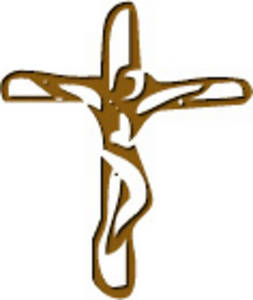
 In recent news, Duke University’s student government voted against giving official recognition to the school’s Young Life chapter due to the organization having a ban on openly LGBT leadership.
In recent news, Duke University’s student government voted against giving official recognition to the school’s Young Life chapter due to the organization having a ban on openly LGBT leadership.
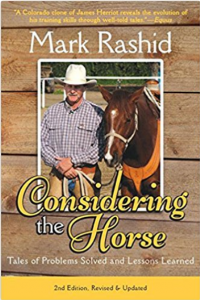 I just finished reading another of Mark Rashid’s books, titled “
I just finished reading another of Mark Rashid’s books, titled “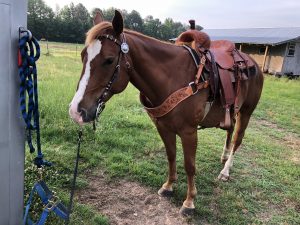 Saturday morning, Knockout and I started out on a relaxing pasture ride.
Saturday morning, Knockout and I started out on a relaxing pasture ride.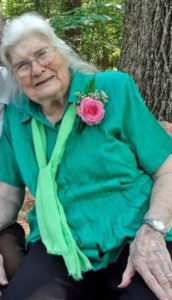 Last November, Mama fell and broke her hip. At 90 years old, any injury is a serious concern. But Mama had recovered well from broken bones before and we expected a full recovery this time.
Last November, Mama fell and broke her hip. At 90 years old, any injury is a serious concern. But Mama had recovered well from broken bones before and we expected a full recovery this time.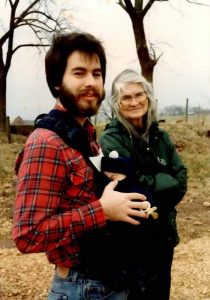
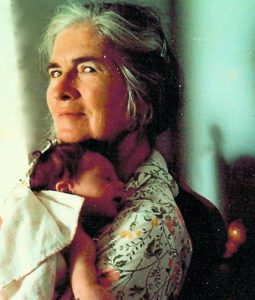 Mama taught me to stand firm in my convictions. From things as minor as making sure pagan-based customs were excluded from our Christian holiday celebrations to major issues such as school integration and standing against racism, we were taught at an early age to stand for what we believed no matter how unpopular our stance might be.
Mama taught me to stand firm in my convictions. From things as minor as making sure pagan-based customs were excluded from our Christian holiday celebrations to major issues such as school integration and standing against racism, we were taught at an early age to stand for what we believed no matter how unpopular our stance might be.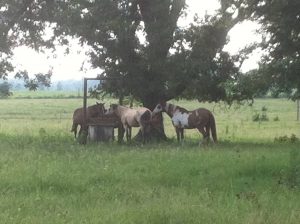 The young horses tend to gather at the northeast corner of the pasture each afternoon. There, they tease each other, chase each other, and just generally enjoy each other’s fellowship.
The young horses tend to gather at the northeast corner of the pasture each afternoon. There, they tease each other, chase each other, and just generally enjoy each other’s fellowship.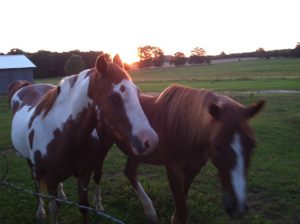 I absolutely love spending time with our horses learning horsemanship!
I absolutely love spending time with our horses learning horsemanship!